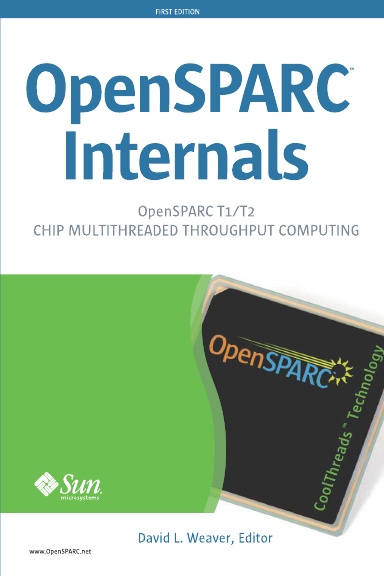Contributed a post on how compilers handle constants to the OTN Garage. The whole OTN blog is worth reading because as well as serving up useful info, Rick has good irreverent style of writing.
Wednesday, June 25, 2014
Monday, June 23, 2014
Presenting at JavaOne and Oracle Open World
Once again I'll be presenting at Oracle Open World, and JavaOne. You can search the full catalogue on the web. The details of my two talks are:
Engineering Insights: Best Practices for Optimizing Oracle Software for Oracle Hardware [CON8108]
Oracle Solaris Studio is an indispensable toolset for optimizing key Oracle software running on Oracle hardware. This presentation steps through a series of case studies from real Oracle applications, illustrating how the various Oracle Solaris Studio development tools have proven instrumental in ensuring that Oracle software is fully tuned and optimized for Oracle hardware. Learn the secrets of how Oracle uses these powerful compilers and performance, memory, and thread analysis tools to write optimal, well-tested enterprise code for Oracle hardware, and hear about best practices you can use to optimize your existing applications for the latest Oracle systems.
Java Performance: Hardware, Structures, and Algorithms [CON2654]
Many developers consider the deployment platform to be a black box that the JVM abstracts away. In reality, this is not the case. The characteristics of the hardware do have a measurable impact on the performance of any Java application. In this session, two Java Rock Star presenters explore how hardware features influence the performance of your application. You will not only learn how to measure this impact but also find out how to improve the performance of your applications by writing hardware-friendly code.
Friday, June 13, 2014
Enabling large file support
For 32-bit apps the "default" maximum file size is 2GB. This is because the interfaces use the long datatype which is a signed int for 32-bit apps, and a signed long long for 64-bit apps. For many apps this is insufficient. Solaris already has huge numbers of large file aware commands, these are listed under man largefile.
For a developer wanting to support larger files, the obvious solution is to port to 64-bit, however there is also a way to remain with 32-bit apps. This is to compile with large file support.
Large file support provides a new set of interfaces that take 64-bit integers, enabling support of files greater than 2GB in size. In a number of cases these interfaces replace the existing ones, so you don't need to change the source. However, there are some interfaces where the long type is part of the ABI; in these cases there is a new interface to use.
The way to find out what flags to use is through the command getconf LFS_CFLAGS. The getconf command returns environment settings, and in this case we're asking it to provide the C flags needed to compile with large file support. It's useful to take a look at the other information that getconf can provide.
The documentation for compiling with large file support talks about both the flags that are needed, and what functions need to be changed. There are two functions that do not map directly onto large file equivalents because they have a long data type in their prototypes. These two functions are fseek and ftell; calls to these two functions need to be replaced by calls to fseeko and ftello
Wednesday, June 11, 2014

Oracle Scene is the quarterly for the UK Oracle User Group. For the current issue, I've contributed an article on developing with Solaris Studio.



